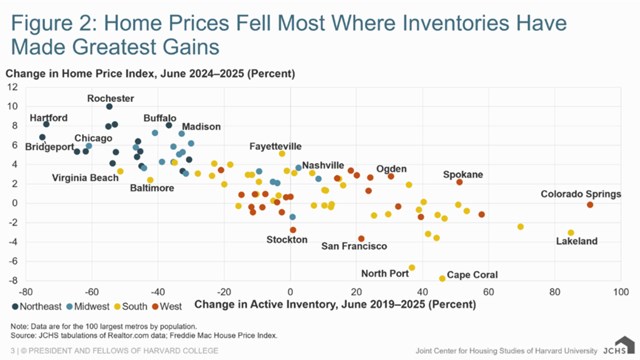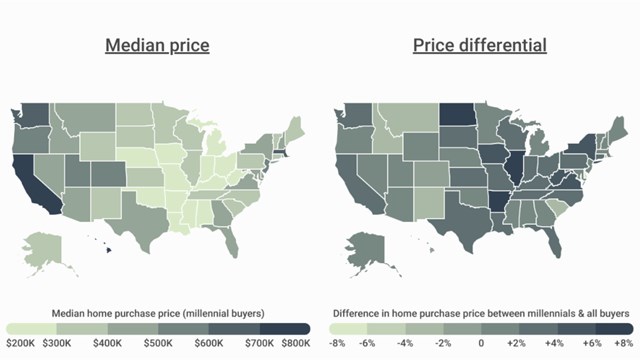Real estate in the New York Metropolitan area is hot. Ask any broker and they will tell you that their job is getting more and more difficult because there is simply no supply. Many sellers are having a hard time committing to a sale because of uncertainty as to whether tomorrow’s market may be able to generate a higher price or whether we’re experiencing the last gasp of a market boom period. In the superheated market, buyers are feeling tremendous pressure because sellers are demanding that contracts of sale contain few, if any, contingencies and the line of people bidding on a single apartment results in very short turn-around times for the execution and delivery of binding contracts. Sellers in this market look to bidders who are willing to sign a contract as quickly as possible; in many instances without concern for a purchaser’s need to perform their due diligence. The question then for the prudent buyer is who to rely upon when seeking representation about a co-op corporation’s or condo association’s condition when the time to verify such conditions independently may be short.
A Seller’s Duty to Disclose?
When looking at the people who should be responsible for making representations about an apartment or a building’s physical or financial condition, the logical choice would be the seller. Unfortunately, though, in a hot market it is not likely for a seller to make any representations except those set forth in the standard form of contract of sale. While those representations include, among other things, that the apartment will be conveyed free and clear of any liens, vacant and in broom-clean condition with the appliances in working order, they do not address many important things that could affect a buyer’s decision to proceed with a transaction. For example, two factors that could have a great impact on the affordability of the apartment are the financial condition of the co-op corporation or condo association and the physical condition of the building and the building systems servicing the apartment. The law imposes no duty upon a seller to disclose anything about these conditions. In fact, the basic theory in New York is "caveat emptor," meaning, "let the buyer beware." This theory is supported by the well-settled principal that a seller has no duty to speak when the parties deal at arms length; the mere silence on the part of a seller without some act or conduct that amounts to concealment is not actionable. Therefore, unless a seller takes affirmative action that prevents a buyer from determining the existence of an adverse condition (i.e., painting over a wall that is the subject of constant leaks), a buyer has no recourse against a seller on account of that condition.
However, federal law imposes a duty of disclosure upon sellers when certain environmental conditions are known to a seller, as in the case of lead paint, and there are instances where deficiencies are so dangerous that a seller has a duty to inform a buyer of that condition, as in the case of contaminated water. While these disclosures are certainly of great importance, they do not address many typical concerns of buyers when purchasing a co-op or condo.
Don’t Look to the Broker
After the seller, the next likely person that a buyer would look to for representation as to the condition of a given building or apartment is the broker. After all, the broker is a licensed professional with experience in these types of transactions. It is the broker who spends a large amount of time with buyers and builds a personal relationship with the buyer in many instances. Unfortunately, for several reasons, the broker is not the best person to rely upon.
In many cases the broker will not have enough information about a particular building or apartment to be in a position to make any representation as to potential problems that may exist. This is particularly the case in New York City, where it would be virtually impossible for brokers to keep abreast of the changing conditions of buildings, let alone the thousands of apartments in any given neighborhood. Furthermore, much of the information circulated by brokers is second-hand or anecdotal, and should not be considered absolutely reliable for such a large investment.
Except in instances where the broker is hired by the buyer, the broker does not have a duty to disclose any adverse conditions affecting the apartment to a prospective purchaser. Certain states do impose the duty to perform a competent and diligent inspection of the property upon the broker, obligating them to report all facts they are aware of that may materially affect the value or desirability of the property (that is not within the reach of diligent attention and observation by the buyer). However, in New York the broker has no such statutory obligation. In fact, New York State Real Property Law states that no action may lie against an agent for that matter, for failing to disclose certain conditions that would clearly affect certain purchasers’ decisions as to whether or not to buy an apartment.
In New York, a broker is not liable for failing to disclose to a buyer that an apartment was occupied by an individual with certain diseases, or that the dwelling was the site of a murder, suicide or other death, or any other crime punishable by a felony. Furthermore, in the absence of an active concealment by the seller that is known to the broker, a broker may remain silent and escape any culpability for fraud. Therefore, it would be imprudent for a purchaser to rely too heavily upon a broker when trying to determine whether there are any risks in purchasing an apartment or if there are any material conditions that could affect the buyer’s decision to proceed with a transaction.
Who Can You Count On?
It would appear that purchasing an apartment in New York City or its surrounding areas puts buyers in a precarious position where they may have to do a considerable amount of detective work in a very short time frame. To best prevail under such circumstances, buyers must be savvy enough to hire professionals who can assist them in discovering any adverse conditions that would affect their decision prior to signing a contract of sale or at least prior to closing.
The obvious first choice a buyer should look to when purchasing an apartment is an attorney who has experience with co-ops and condos, as opposed to a general practitioner who may not be familiar with the trouble signs that can be found by reviewing an offering plan, financial statements and board minutes. In the current market where sellers will not tolerate due diligence periods, it is advisable for buyers to inquire with their attorney as to how long they will need to perform their due diligence inspection and what documents they may require to begin the process so that financial statements, board minutes and the offering plan with amendments can be sent as quickly as possible.
If an attorney cannot complete the process within approximately five business days of receiving the materials for review, there is likelihood that the apartment will be sold to the next purchaser in line for the apartment. Therefore, it is important for buyers to convey to their attorney the time sensitivity of the matter and to obtain assurances that the attorney’s schedule will allow a thorough review of the documents as quickly as possible.
In some instances where there may be questions concerning the financial stability of the co-op or condo, it may be prudent to hire an accountant to review the property’s financial statements, to, among other things, determine whether any problems exist relating to an underlying mortgage, capital expenses, or material loss contingencies. Although this may seem like overkill, the apartment purchaser must recognize that selecting an apartment entails more than appreciating the view, a building’s amenities or the size of the apartment, but rather purchasing a co-op or condo apartment, a buyer is really making an investment in a business. Many co-ops and condos have budgets in the millions of dollars, derived in large part from the apartment owners’ maintenance and common charges. Planned capital improvements, shortfalls in income or other foreseeable expenditures may result in significant assessments or increses in your monthly charges.
Circumstances may dictate that a purchaser hire an engineer to perform a physical inspection of the apartment and possibly the building of which it forms a part. This would be prudent if there is concern as to the structural integrity of the building or a question as to whether the building systems (i.e., plumbing or electrical systems) will be satisfactory to the buyer. If the purchaser is seeking to combine apartments, it would be critical to have an engineer determine in advance whether the combination is even possible and whether the bylaws of the co-op or condo would prohibit the combination or significantly increase costs. Depending on circumstances, there are also a host of expediters who are familiar with zoning regulations and building codes that may be necessary to call upon to determine whether any planned alterations are feasible.
Caveat Emptor
In this hot New York real estate market where prices are on the rise and competition is fierce for the few apartments available, buyers are under tremendous pressure to commit to transactions. Sellers have the luxury of multiple bidders that allow them to make few, if any, representations and require contracts with virtually no contingencies. Buyers have to commit to transactions with a small window within which to gather as much information as possible about an apartment or a building’s physical or financial condition.
The buyer in today’s market is pretty much on their own to gather enough information to proceed with the transaction. Buyers are advised to seek out professionals who have experience performing due diligence inspections and are able to provide enough information so the buyer can make an informed decision. Otherwise, Caveat Emptor!
Mr. Finkelstein is an associate in the transaction department of Wagner Davis & Gold, PC, a law firm that specializes in co-op and condo law. Ms. Lipsius, also an associate at the firm, practices in the field of commercial litigation. Mr. Wagner is the managing partner of the Wagner, Davis & Gold, who has specialized in co-op and condo law and commercial litigation for approximately 23 years.






Leave a Comment